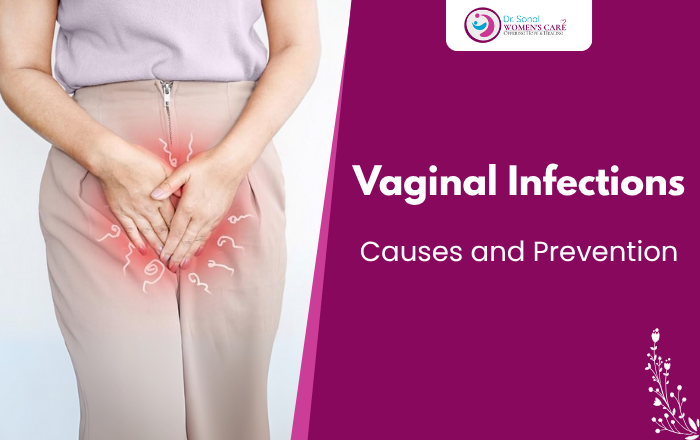Let’s talk about something many women deal with but rarely discuss openly—vaginal infections. If you’ve experienced itching, unusual discharge, or discomfort down there, you’re definitely not alone. In fact, most women will have at least one vaginal infection in their lifetime.
Understanding what causes vaginal infections and knowing how to prevent them can save you a lot of discomfort. Most importantly, these infections are treatable, and you can take simple steps to protect yourself.
What Are Vaginal Infections?
Your vagina naturally has good bacteria that keep it healthy. Think of it like a balanced garden—things grow well when everything is in harmony. But when that balance gets disrupted, infections can develop.
The three most common types are:
- Yeast infections – caused by fungus overgrowth
- Bacterial vaginosis (BV) – when bad bacteria outnumber the good ones
- Trichomoniasis – a sexually transmitted infection
What Causes Vaginal Infections?
Understanding the triggers helps you avoid them. Here are the main reasons infections happen:
- Disrupted pH Balance
Your vagina maintains a certain level of acidity to stay healthy. Using harsh soaps, douching, or even too much washing can throw this balance off and invite infections.
- Antibiotics
While antibiotics fight bad bacteria, they also kill the good bacteria in your vagina. This opens the door for yeast to grow unchecked.
- Hormonal Changes
Pregnancy, your menstrual cycle, menopause, and birth control pills all change your hormone levels. These shifts can make you more prone to infections.
- Sexual Activity
New sexual partners, friction during sex, or unprotected intercourse can introduce new bacteria or irritate the vaginal area. This doesn’t mean sex is bad—it just means being mindful helps.
- Tight Clothing
Wearing tight jeans or synthetic underwear traps moisture and heat, creating the perfect environment for bacteria and yeast to multiply.
- Weak Immune System
When you’re stressed, sick, or managing conditions like diabetes, your body’s defenses are lower. This makes it easier for infections to take hold.
- Diet and Lifestyle
Eating too much sugar feeds yeast growth. Not getting enough sleep and high stress levels also weaken your body’s natural protection.
Signs You Might Have a Vaginal Infection
Pay attention to these warning signs:
- Unusual discharge (white, gray, green, or yellowish)
- Strong or fishy odor
- Itching or burning sensation
- Redness or swelling
- Pain when urinating or during sex
Remember, normal discharge is usually clear or white and doesn’t smell bad. If something feels different, trust your instincts.
How to Prevent Vaginal Infections
Prevention is easier than treatment. Here are practical ways to keep your vaginal health in check:
- Choose Cotton Underwear
Cotton allows your skin to breathe. Avoid synthetic fabrics that trap moisture. Also, change out of wet swimsuits or workout clothes quickly.
- Practice Gentle Hygiene
Wash your vaginal area with just water or mild, unscented soap. Never use douches—they wash away the good bacteria your body needs. Always wipe from front to back after using the bathroom.
- Maintain Good Intimate Hygiene
Use protection during intercourse to prevent infections. Urinate after being intimate to flush out any bacteria. If you’re prone to infections, talk to your partner about cleanliness too.
- Watch Your Diet
Cut down on sugary foods and drinks. Eat yogurt or take probiotic supplements to boost good bacteria in your body. Drink plenty of water throughout the day.
- Avoid Irritating Products
Stay away from scented tampons, pads, vaginal sprays, and bubble baths. These products often contain chemicals that irritate your vaginal area.
- Manage Stress
Stress weakens your immune system. Try to get enough sleep, exercise regularly, and find healthy ways to relax.
When Should You See a Gynecologist?
While some mild symptoms might improve on their own, you should definitely see a doctor if:
- It’s your first time having these symptoms
- Symptoms don’t improve after a few days
- You keep getting infections repeatedly
- You’re pregnant
- You have severe pain or fever
Self-diagnosing can be risky because different infections need different treatments. What works for a yeast infection won’t help bacterial vaginosis, and using the wrong treatment can make things worse.
FAQs
Q1. Can a vaginal infection go away on its own?
Some mild yeast infections may improve on their own, but most bacterial infections need treatment. It’s best to consult a doctor to avoid complications.
Q2. Is it okay to use home remedies for vaginal infections?
Some home remedies may relieve mild symptoms, but they don’t treat the root cause. It’s always safer to consult a gynecologist for proper diagnosis and medication.
Q3. Can vaginal infections occur during pregnancy?
Yes, hormonal changes during pregnancy can make you more prone to yeast or bacterial infections. Always consult your gynecologist before using any medication.
Take Control of Your Vaginal Health
Vaginal infections are common, but they don’t have to control your life. By understanding the causes and following simple prevention steps, you can reduce your risk significantly. Remember, there’s no shame in seeking help when you need it.
Need Help? Visit Dr. Sonal Women’s Care Clinic
If you’re experiencing symptoms or have concerns about vaginal infections, getting the right diagnosis makes all the difference. Waiting too long can lead to bigger problems down the road.
Dr. Sonal Women’s Care Clinic in Ambegaon Budruk, Pune, offers complete vaginal infection treatment for women. The clinic is led by Dr. Sonal Katarmal, a trusted and experienced gynecologist dedicated to women’s reproductive health.
At the clinic, you’ll get a proper diagnosis and treatment suited to your condition, helping you recover safely and effectively.
Don’t let embarrassment stop you from getting the care you need. Your vaginal health matters — and help is always available at Dr. Sonal Women’s Care Clinic in Ambegaon Budruk, Pune.

